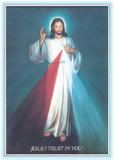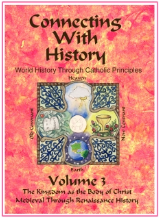 Ds#2 started multiplication, and division, this week in MEP. Each year is broken up into 6 books, and he is somewhere in the 4th one. At first he was intimidated. "I don't know division," he said.
Ds#2 started multiplication, and division, this week in MEP. Each year is broken up into 6 books, and he is somewhere in the 4th one. At first he was intimidated. "I don't know division," he said.MEP introduces both concepts simultaneously and demonstrates that they are opposites of each other. It shows how to find the answer to division problems using his multiplication tables. It gives pictures and has him write addition, multiplication and division problems for each one. Ds#2 thought that was great.
One activity asked that he use blocks to represent a simple problem like 5 x 2 = 10. He knew the answer readily and did his work on paper easily. I almost skipped the blocks thinking he had a good understanding, but since the MUS blocks were right by us, and they were not getting as much use these days, I grabbed them.
To represent 5 x 2 = 10, Ds#2 took out a 5, 2, and 10 block and got immediately frustrated because he did not know how to make an equal sign. After asking him to put the 2 block back, and asking how many "times" did he add the 5, he took out another 5 block. He then put them together next to the 10 block, and I saw his light bulb go on.
The experience reinforced for me the importance not just of the hands-on aspect of manipulatives, but also of their concrete nature, which is so important for young learners. Blocks, number lines, rulers, containers, whatever demonstrates the concepts concretely will help them better understand what they are doing in their books. I will make a point of doing that with Ds#1 whenever possible as he continues (with wonderful success I might add) to overcome his dependency on the standard algorithms and actually *think* about the numbers and concepts.














No comments:
Post a Comment